Whether it was a regular cop fighting crime and criminals on his own in the 1970s (Shakti/Deewaar), encounter specialists killing their way to a safer Mumbai (Ab Tak Chhappan/Garv), or corrupt cops finding their conscience and standing up for justice in recent years (Dabangg/Simmba), Bollywood cop movies have often been reduced to the glorification of the leading man.
Khakee was as refreshing as a cop movie can get in India simply for breaking out of this cycle of glorification.
Police tasks are rarely as uncomplicated as popular films portray them to be. At each intersection, there are several stakeholders, and there are more unknowns than knowns. Khakee is entirely correct on this.
The film begins with the tip of the iceberg, and then the plot gradually unfolds. We don’t find out who the actual adversaries are until halfway through the second half.
While Rajkumar Santoshi has many bigger films under his belt – Andaz Apna Apna, Ghayal, and Damini – Khakee outperformed them all for me. It’s possible that the movie didn’t get it’s due because of its release date.
It was released on January 23, 2004, with Aetbaar (another Bachchan release that was boosted by the then-in-demand duo of John Abraham and Bipasha Basu) at a time when the box office was still riding the wave of Kal Ho Naa Ho and Munna Bhai MBBS.

Khakee melded a convoluted plot, a chase story, religious politics, and the everyday problems of Indian police officers into a delightful plotline that did not lag or run too fast at any moment. The dialogue was also amazing, being concise and to-the-point, without being preachy but still memorable.
I remember AB giving his men a pep talk as they were leaving for Chandangarh: “Woh kab ayenge humein nahi pata, par woh ayenge zaroor.” “Wo kitne honge humein nahi pata, par wo bahut saare honge ye pata hai.” These are the kinds of conversations that capture the sense of dread and danger that our cops face regularly.
The character development and acting were what kept me interested in this film.
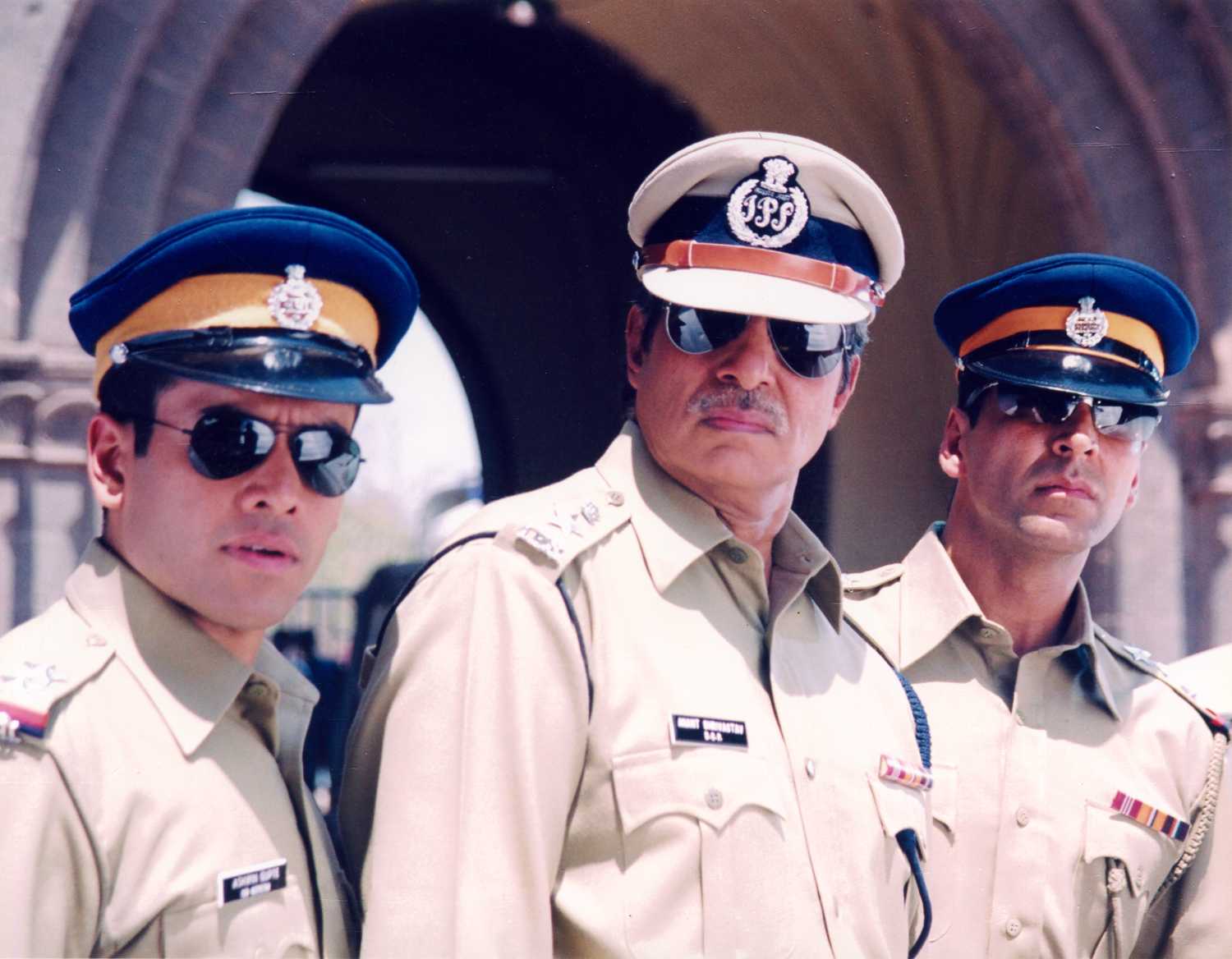
Even the two constables (played by Kamlesh Sawant and D Santosh) get their due and leave their mark in a great cast that includes stars like Amitabh Bachchan, Akshay Kumar, Ajay Devgn, and Aishwarya Rai) get their due and manage to leave their mark. It’s no surprise that I immediately recognized Kamlesh Sawant as Gaitonde in Drishyam from his role as a cop in Khakee.
The acting was excellent. As senior officer Anant Kumar Srivastava, Amitabh Bachchan was as dependable as ever, tasked with carefully transporting a criminal from Chandangarh to Mumbai.
Leading a squad of young police officers was right up his alley, having discovered his second career not as a hero but as the hero’s father.
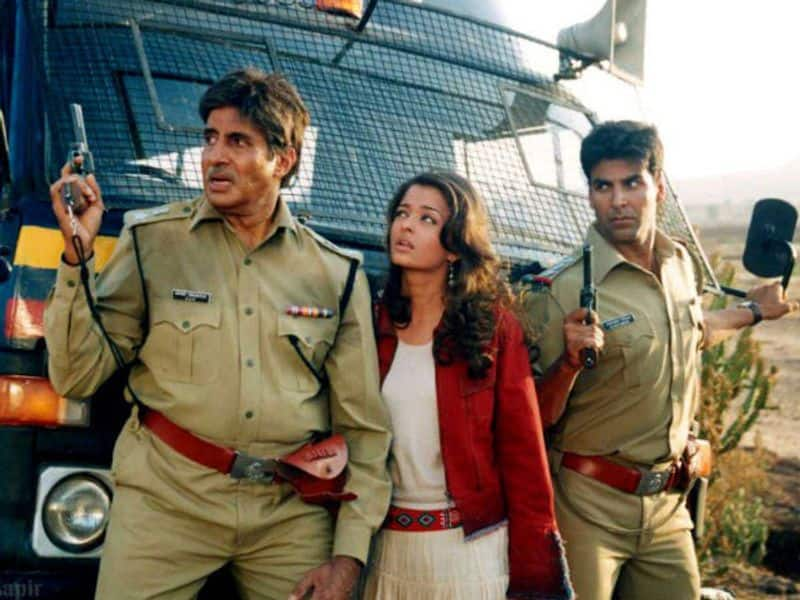
He seldom put a foot wrong when combining his expertise as a cop during his angry young man days with his current responsibilities as an older man. Shekhar, played by Akshay Kumar, was also in fine form.
He is ideal as the nihilistic corrupt officer who finds a conscience, having just discovered his humorous side in Hera Pheri and having a relatively long list of cop flicks in his filmography.
The comic parts with Akshay were pure gold. Taking a bribe from a man in the morning after spending the night with his wife, betting on their chances of returning alive from the operation, and following a witness during a perilous mission was all pure gold.
Tusshar Kapoor was serious in his quest to expose the flaws in the system he had been a part of. The supporting cast was also fantastic. Prakash Raj, Atul Kulkarni, and Sabyasachi Chakrabarty all give their all in their roles and do them credit.
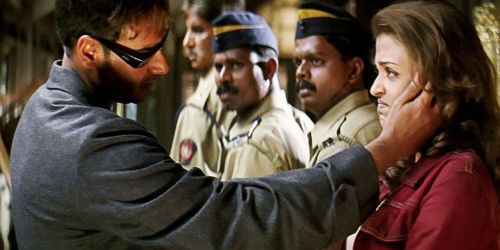
But Ajay Devgn and Aishwarya Rai were the stars of the show for me. Even if it wasn’t the first time a starring man played the adversary, it was nonetheless unexpected each time.
Ajay Devgn nails the role of ex-cop turned criminal Angre, effortlessly moving between humor and evil. As Mahalaxmi, Aishwarya Rai makes the most of her short screen time, but it’s the twist at the end that sticks with me.
Maybe it was my naïve adolescent mentality, but I’d put her betrayal in the top three of all time (Kajol turning out to be the killer in Gupt and Naseeruddin Shah revealed as not blind in Mohra being the other two). I have a soft spot in my heart for Khakee.
Also Read: How Abhishek Chaubey’s Films Use Real Places To Set The Tone

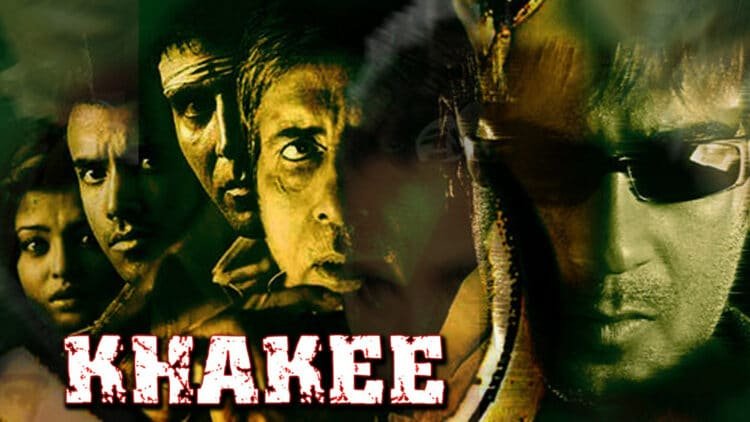
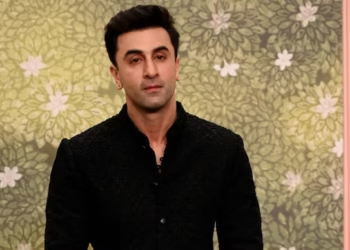












Comments 2